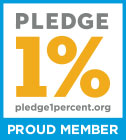Reflections on the 2024 Currency Research Payments Week: Thoughts for the Future
 Currency Research’s Payments Week was held in Kuala Lumpur from 10-14 June 2024. During the week, the Central Bank Payments Conference and the Global Payments Summit highlighted key trends and challenges in the global payments landscape, focusing on Central Bank Digital Currencies (CBDCs), cross-border real-time payments, the growing importance of combating fraud and scams, and pathways to support financial inclusion.
Currency Research’s Payments Week was held in Kuala Lumpur from 10-14 June 2024. During the week, the Central Bank Payments Conference and the Global Payments Summit highlighted key trends and challenges in the global payments landscape, focusing on Central Bank Digital Currencies (CBDCs), cross-border real-time payments, the growing importance of combating fraud and scams, and pathways to support financial inclusion.
Our Director at Payments Consulting Network, Matt Sykes, attended the event and has written this article to discuss the key topics and insights shared during the week. Read on to explore the highlights and takeaways from the event.
Central Bank Digital Currencies (CBDCs)
There was substantial discussion around the role of CBDCs. Notably, for both wholesale and retail CBDCs a level of scepticism was expressed, with the question of whether CBDCs are a solution looking for the problem. Nevertheless, the interest in the potential role for CBDCs persists and is growing. Over 130 countries now have some form of research, development, pilot or deployment of CBDCs, representing some 98% of global GDP. The level of interest is notable. The questions that need to be answered, both for whether CBDCs have a role and if they do then how concerns are addressed, are important. These questions include:
- Is there any difference between account-based wholesale CBDCs and the existing central bank RTGS system? If in substance there is not, then the only wholesale CBDC pathway that makes sense is tokenisation, and does that deliver sufficient incremental benefit to justify the significant investment in build.
- What is the use case and indeed the business case for retail CBDCs? Given the rapid expansion of real-time/fast payment networks globally and the increasing focus on cross-border real-time payments, do retail CBDCs bring something new and unique from a usage perspective?
Further, some of the discussion around the eEuro / digital Euro included that the expectation is base use will be free to end users. How will a business case stack up if core usage is not commercialised?
- A continuing concern of the public, highlighted over the course of the conferences, was the ‘Big Brother’ effect and the potential lack of privacy. While movements have been made to curb the practical risks here, including anonymity to the issuer, if public perception cannot be drastically changed, then any objectives of CBDCs cannot be achieved.
- There continues to be a lack of clear objectives around CBDCs with both systemic and end user issues in mind.
There is no doubt that the global CDBC experiment will continue to gain momentum. Where it will end will depend at least in part on answers to the above questions.
Domestic and Cross-Border Real-Time Payments
A helpful backdrop to the discussion around real-time payments was Currency Research’s 2024 Central Bank Payments Pulse. This highlighted that both mobile and instant payments are growing more substantially than cash in all regions, and except for a small number of responses suggesting mobile payments have seen decline, cash has been the primary payment method observed to be in decline across all regions except MEA.
While the report is a long way from predicting the end of cash in any region, it serves as a starting point for discussion on the importance of getting digital payments right, no matter the technology, and particularly risks associated with fraud and scams, and AI threats. Real-time payment networks together with digital wallets are at the front of the innovation curve, with domestic real-time payment networks now established in around 100 countries.
As domestic real-time payments become increasingly ubiquitous, the need and potential for cross-border real-time settlement is an increasing focal point. The progress being made in Southeast Asia should act as an important reference point for other regions. Bilateral links are either live or in progress between Singapore and Thailand, Thailand and Malaysia, Singapore and Malaysia, and Singapore and Indonesia.
Project Nexus, coordinated by the BIS Innovation Hub in Singapore, is focused on expanding cross-border real-time networks to a multilateral model. The increasing connectivity of domestic payment schemes with one another has the potential to completely change cross-border payments and trade.
That said, with increasing speed and digitisation comes increasing risks. A quarter of the world’s population have been touched by fraud and scams, with USD1 trillion being lost to scammers in 2023 alone. Prima facie, real-time payment settlement has the potential to increase the incidence of fraud. While the reality of this increased risk is less certain, the conference heard both the reality of payments fraud and mechanisms to combat fraud, through customer onboarding, customer education, and through technology that is increasingly effective at identifying fraud transactions in real time.
From a risk perspective, as the world’s payments continue toward increasingly fast and increasingly digitised forms, financial systems will be the focus of bad actors at the state level. One speaker noted that future wars will increasingly be cyber rather than physical, that the acceleration of AI will multiply potential risks, and financial systems will be on the front line. The implication is that regulators and institutions must ensure this features in proactive and reactive developments.
Financial Inclusion and Digital Payments
There was ongoing discussion throughout Payments Week centred around financial inclusion and the potential for payments innovation to significantly improve access to financial services for unbanked and underbanked populations. While 19% of central banks report that over half their population are unbanked, it was heartening to hear the inroads that continue to be made, with global bank account ownership rising from 51% to 76% between 2011 and 2021.
This suggests that an increasing polarisation of financial inclusion across regions and countries. The primary barriers to financial inclusion are reported as financial literacy, access to financial services, and the cost of financial services. The conference heard promising work particularly in sub-Saharan Africa centred around improving financial literacy.
Linking back to trends in digital payments, using ASEAN as an example there are promising signs for payment technology helping improve practical access to financial services. For example, in Indonesia there is an estimated 62% of the population with access to a bank account, but 82% with a mobile wallet. Likewise in the Philippines there is an estimated 53% of the population with access to a bank account, but 88% with a mobile wallet. In practical terms, mobile wallets such as GCash in the Philippines provide wallet-based payments services, but are also building other financial products into their platform for customers. These types of initiatives can go a long way to supporting increasing financial inclusion in developing countries.
Looking Forward to Paris 2025
The next edition of Payments Week will be held in Paris on 17-21 February 2025. As the agenda continues to be built, we can expect continued vigorous discussion on CBDCs including the progress of the digital euro, the impact of the imminent changes to the payments landscape resulting from PSD3, the need for standardisation across borders, the future of bulk payments and ISO20022, and the impact of open banking and open finance on the regulatory and innovation landscapes. We’re looking forward to more exciting developments!
Conclusion
The 2024 Currency Research Payments Week brought sharp attention to the potential benefits and challenges of payments innovation, across CBDCs, real-time payments, and broader payments initiatives. The importance of combatting risks associated with payments innovation is ever-increasing, but the potential for these innovations to deliver social and economic good cannot be understated.
***
Author: Matt Sykes, Director, Sydney, Payments Consulting Network
A seasoned leader with nearly 30 years of experience in financial services, payments, cash, and consulting, he has crafted comprehensive strategic frameworks for various organisations and driven strategy execution through both organic and inorganic growth initiatives. Matt has also successfully built a banking-focused fintech from the ground up, emphasising a results-oriented approach.
***
To follow event updates, visit Currency Research’s Events page here.
Payments Consulting Network was a media partner at the recent Currency Research Payments Week.
***
If you found this article helpful and would like to read similar articles, please subscribe to our newsletter.
To get notified of our latest posts, follow the Payments Consulting Network company LinkedIn page and click on the bell icon at the top right section of our company profile.




